Mate Higginson –Martinborough’s Historian
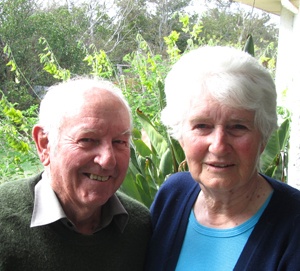 As I walk in the door, Mate Higginson has papers and photos spread out over his table and is busy writing up another article about the history of Martinborough. He begins to tell me of the difference between ‘Waihinga’ and ‘Waihenga’, a topic of recent significance because of the naming of the new community centre. I know from my phone call with him to set up this meeting, and from his “Know Your Town” articles in the Star most months, that Mate is passionate about Martinborough and a dedicated keeper of the town’s history.
As I walk in the door, Mate Higginson has papers and photos spread out over his table and is busy writing up another article about the history of Martinborough. He begins to tell me of the difference between ‘Waihinga’ and ‘Waihenga’, a topic of recent significance because of the naming of the new community centre. I know from my phone call with him to set up this meeting, and from his “Know Your Town” articles in the Star most months, that Mate is passionate about Martinborough and a dedicated keeper of the town’s history.
However, it is Mate himself that I’m interested in this time, the man behind the history. As I expected, he comes from a lengthy Martinborough lineage. Mate’s great-great-grandparents walked over into the Wairarapa in the 1860s and settled on the Wantwood Flats, which stretched along what we now know as Te Muna Road and out to Ruakokapatuna. Their family name was Harris, and the low hill immediately behind Martinborough was called Harris Hill. It was Mate’s grandfather who discovered the glow worm caves and the moa bones in them. As Mate puts it, “I have a great affiliation with the district”.
Mat’e wife Elizabeth has a lengthy history with Martinborough too. In 1900 her grandfather’s family “walked over carrying their swag”, and Elizabeth’s grandfather became a local coachman.
One of my first questions for Mate was how he came by his name. As I expected, it wasn’t the name he was christened with but it has been his for many years. When Mate’s grandfather first saw him he picked the newborn baby up and said “He’ll be my mate for life”. Sadly Mate’s grandfather only lived for another four months, but the name stuck. When Mate started school and his teacher asked him what he was called, he replied “My name is William James but you call me Mate”.
Mate is Martinborough through and through. He was born and educated here, attending first the primary school and then the district high school that existed in the town from 1922 to 1960. It offered a limited range of subjects, depending on the teachers available, for Forms 3 to 5. Mate and Elizabeth recall that you couldn’t study maths because there was no teacher, so “if you needed maths for the job you wanted to do you had to go out of Martinborough”.
By the time Mate was 18 he was working in the family grocery business, which was Higginson’s Store, on the corner opposite Pain and Kershaw. Everything changed for him that year, 1956, because he was called up for compulsory military training. Mate says “it was a real eye-opener for me” and he was terrified. It was “bus to Featherston, train to Palmerston North, army lorry to the camp. They dropped the tailboard, we were all pushed out, and I had to stand on my own feet”. It’s clear that the experience was a tough one for Mate, but he recognises that it was good for him. “You grow up and come out a different person” he declares.
Military training was followed by a carpentry apprenticeship, but after Mate was made redundant three times in five years he left and worked for the next decade at the Post Office telephone exchange. He was there when it closed in 1976 and spent to following four years as groundkeeper at the golf course. From there Mate worked with Max Stevens’ father, and later Max himself, at Stevens Filtrite.
I ask Mate how he viewed the advent of the wine industry in Martinborough. He tells me that in 1979 he spoke at a horticultural seminar arranged to discuss the possibility of growing grapes in Martinborough. He told them that “water is your biggest factor, plus wind. If you can get water and shelter you can grow almost anything here”. The other major issue he identified at the time was “how to get produce reliably to your destination over that hill”.
Although Mate was not a farmer, he had plenty of experience with growing produce. He grew vegetables in various locations around the town, and he and Elizabeth were prolific flower growers. “We entered all the shows”, they say, “with gladioli, roses, chrysanthemums, dahlias, flag lilies, and shrubs for floral work”. When they ceased showing flowers they became judges.
Mate tells me that he got on well with the grape growers and saw them as a positive change in the district. “Martinborough would have been another Ohingaitit if it hadn’t been for the grapes” , he says.
Mate’s interest in history has been there all his life. He says that his mother had no interest whatever even in family history and would “write shopping lists on the back of photos and then throw them out”. She would say “you don’t want to know all that rubbish, there are too many skeletons”. However, Mate’s aunts were more sympathetic and helped him with photos, documents and the stories that lay behind them.
Mate and Elizabeth have known each other most of their lives. Elizabeth grew up in Martinborough too, and was a year behind Mate at school. Their first date was to the Football Ball, one of several held regularly in those days. There was a milk bar in town, movies at the Town Hall, and “bob hops” at both the Masonic Lodge and Oddfellows Hall. Eating out was a choice between “steak, egg and chips or fish, egg and chips”, and the closest thing to a flat white was coffee essence. Both Mate and Elizabeth recall those courting days with nostalgia – “they were lovely times”.
This year Mate and Elizabeth will celebrate 55 years of marriage, all of it lived in the same house. “I married the girl in the next street and we moved out of town to Cologne Street when it was empty paddocks all round” says Mate, “and there we’ve stayed”. Although their children had to leave Martinborough to build their careers, Mate and Elizabeth have stayed here. “Martinborough has been good to us”, they both agree. “It’s helped us and our children, and our parents and grandparents before us. Martinborough is a community – you can choose to be part of it or not”.
Mate’s sense of history and community are closely linked. For him, community is vital and communities create history. Guarding that history and making it available and known to everybody helps strengthen the community and deepen its ties and the circle continues. Perhaps his values are summed up in his simple analogy: “You can break one pencil just like that by snapping it, but put all your pencils in a group and they’re unbreakable”.

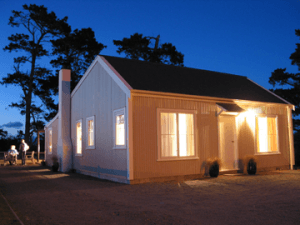
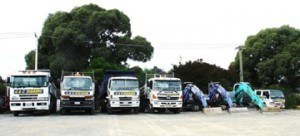


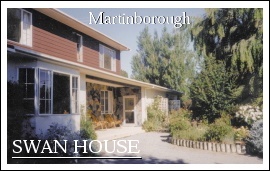
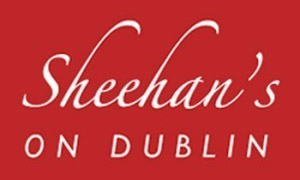
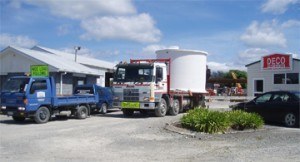


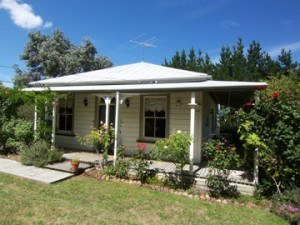
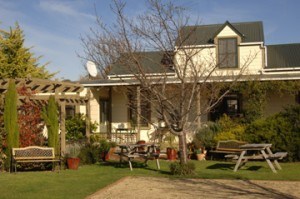
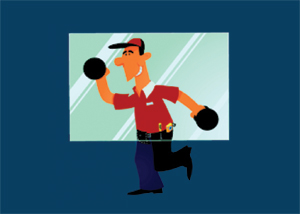
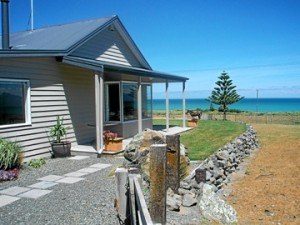
Recent Comments